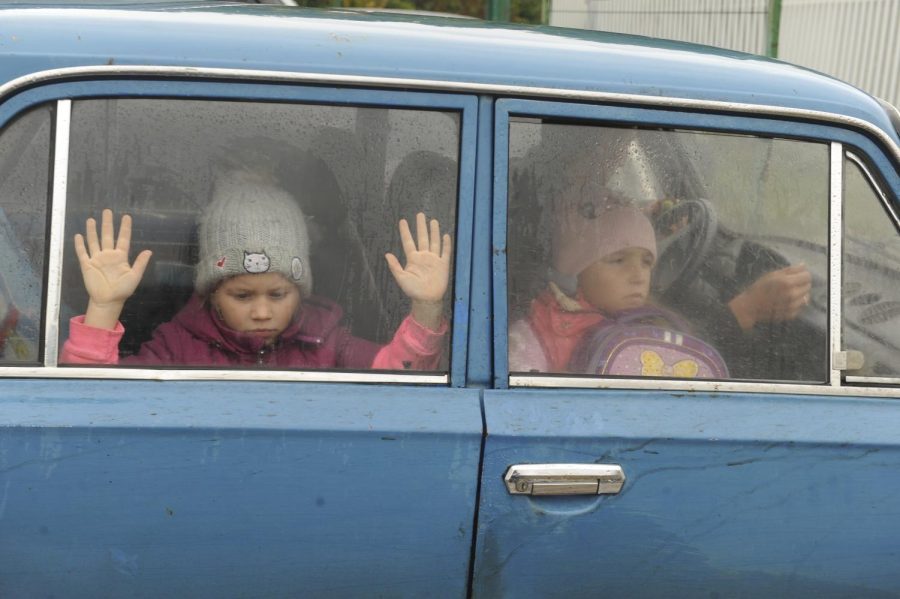Editorial | The conflict in Ukraine will create lasting problems for Europe’s economy
Children look through car windows as they and other refugees from the Kharkiv region of Ukraine arrive at a temporary camp in Belgorod, Russia.
October 20, 2022
Liz Truss, the prime minister of the United Kingdom, has stepped down from leadership after just a mere six weeks. Her plans to improve the economy with tax cuts and deregulation placed Britain in more economic turmoil. The British pound and the euro have hit record lows this year and gas prices have hit an all-time high. The typically stable governments and economies of Western Europe are at an all-time low and an energy crisis looms — why?
The conflict in Ukraine is the easy answer. Between having to provide soldiers, supplies and financial support to Ukraine to fight Russia, Europe has had to spend money it wasn’t expecting to. Additionally, the sanctions against Russia have meant that the nearly 3 million barrels of oil typically sent to Europe have been diverted elsewhere. To fight back against these sanctions, Russia closed its Nord Stream 1 pipeline in the summer, which provided 40% of Europe’s natural gas. These factors create a more unstable Europe that will have lasting problems for years to come as an energy crisis and recession loom large creating majorly difficult problems for the people of Europe.
As we get into the colder months, the lack of natural gas in Europe is going to become much more dire for its people. November and December are predicted to have very low temperatures this year, meaning that demand for gas will also increase. While many European countries have proposed ways to save energy, it is unclear how much this will affect Europeans. To make matters worse, experts are predicting that next winter will be even worse as European countries can’t agree on how to address the issue. Some European countries have proposed price caps on gas while others worry about the economic effects of these caps on demand. It seems as though every solution proposed thus far will hurt Europe’s economy in one way or another, which will have lasting effects on its residents as time goes on.
Europe’s economy before the conflict in Ukraine was already struggling as many European nations were fighting to recover after the COVID-19 pandemic, which hurt many of the economies and dropped the EU’s GDP down by 6.1%. The conflict between Ukraine and Russia exacerbated this, making the cost of living rise and inflation hit record highs. This affects every person in Europe and will probably have lasting effects on the economy and livelihoods of the people. The already struggling economies of most Western European countries have negatively affected their citizens — an energy crisis and long-term recession will make it much worse.
The war in Ukraine will probably last a lot longer than people expected as Putin does not appear to want to back down. Many in Europe are aware of this, which is why the governments should hastily but thoroughly create plans to help curb an energy crisis and a recession. Many Europeans have wavered in their support for this war as it has affected almost every citizen financially. If European countries don’t act soon, there will potentially be irreversible consequences around the world for many years to come both economically and politically.



